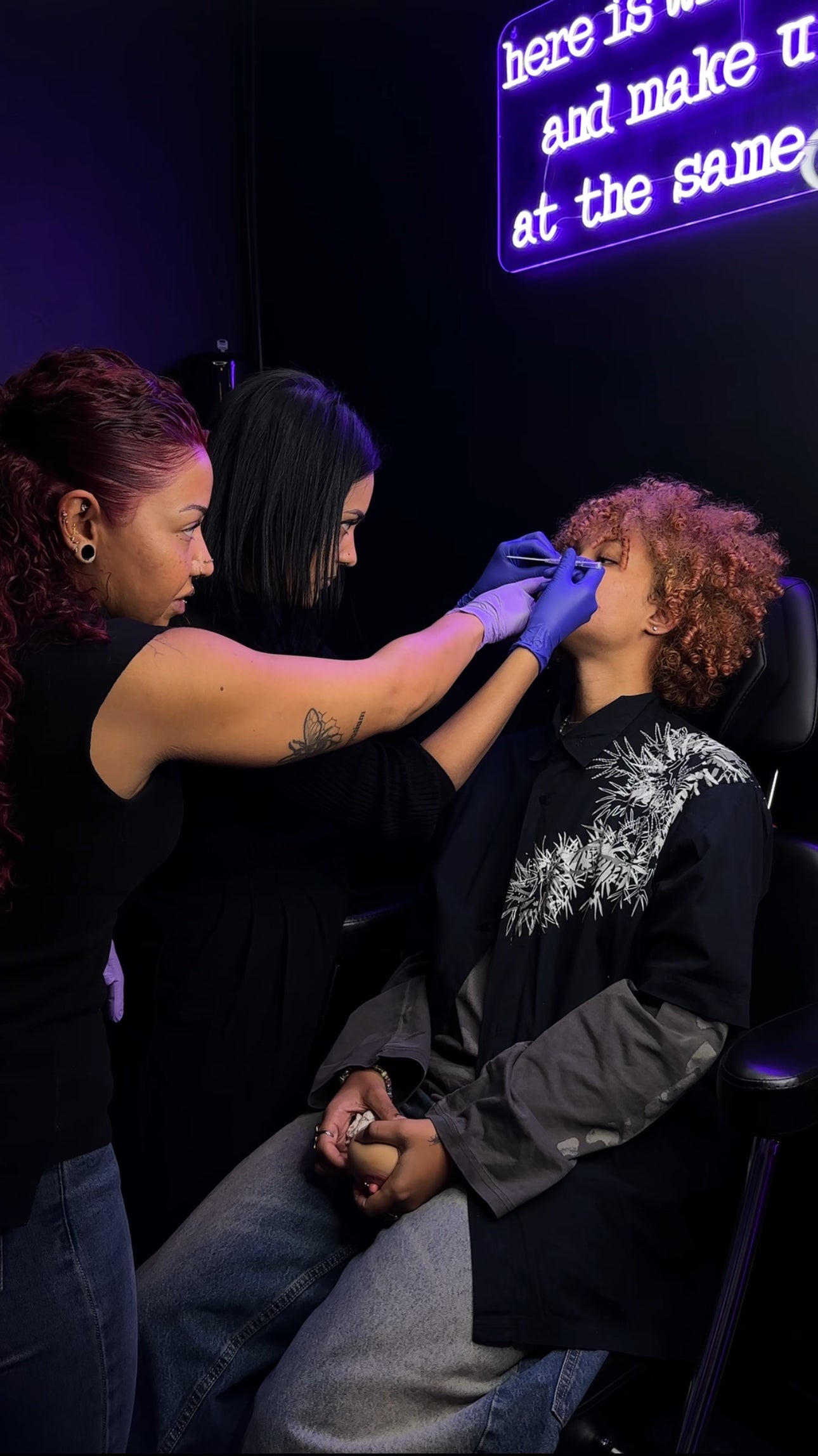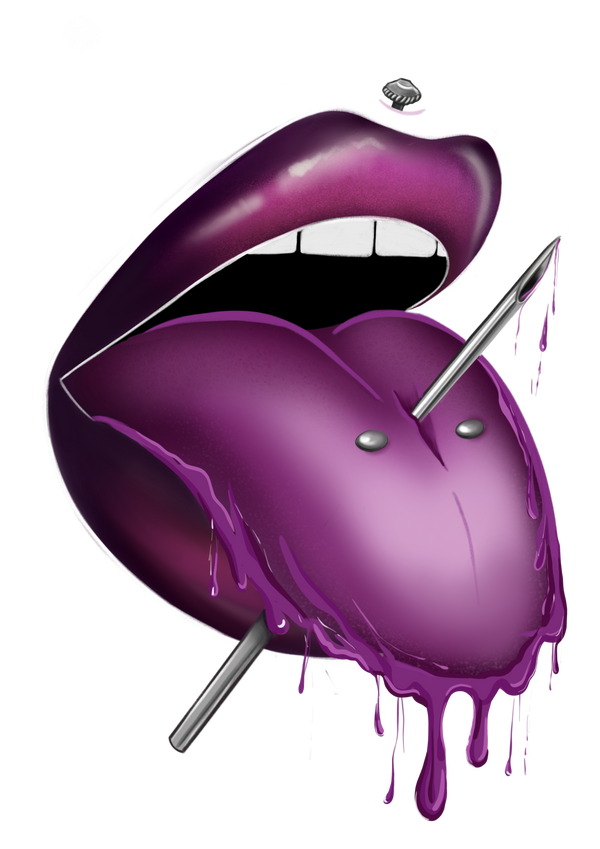HYGIENE.. SO IMPORTANT.
Your overall hygiene is crucial to the proper healing of your piercing. If you only clean the piercing and neglect other areas, bacteria and impurities from elsewhere can be transferred to the piercing, increasing the risk of infection.
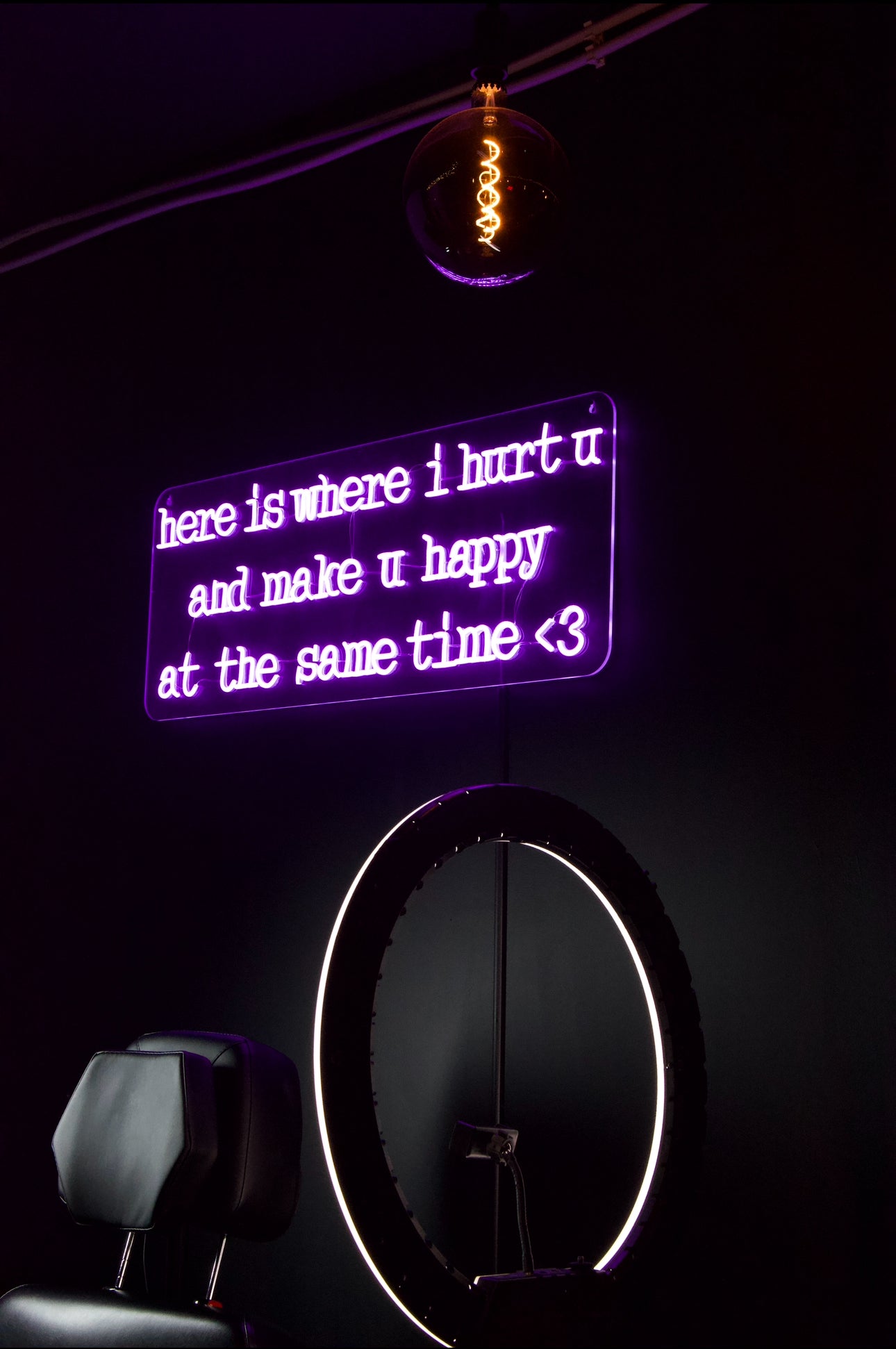
THERE ARE SO MANY LAYERS OF HYGIENE..
LET'S START AT THE BEGINNING.
YOU.
-
DIRTY BODY.
We collect a lot of bacteria on our body during the day. Regular showering helps to wash these bacteria away. We recommend showering at least once or twice a day to maintain good hygiene.
-
DIRTY CLOTHES.
When you put on dirty clothes, you are already introducing bacteria to your body. This can be especially problematic if the clothes directly cover your piercing, exposing it to bacteria. Make sure to wear clean clothes every day to help prevent infection.
-
DIRTY HANDS.
How often do you wash your hands during the day? Our hands are a hot spot for bacteria, and we can unknowingly touch our piercing or the surrounding area. Keeping your hands as clean as possible throughout the day can help prevent infections.
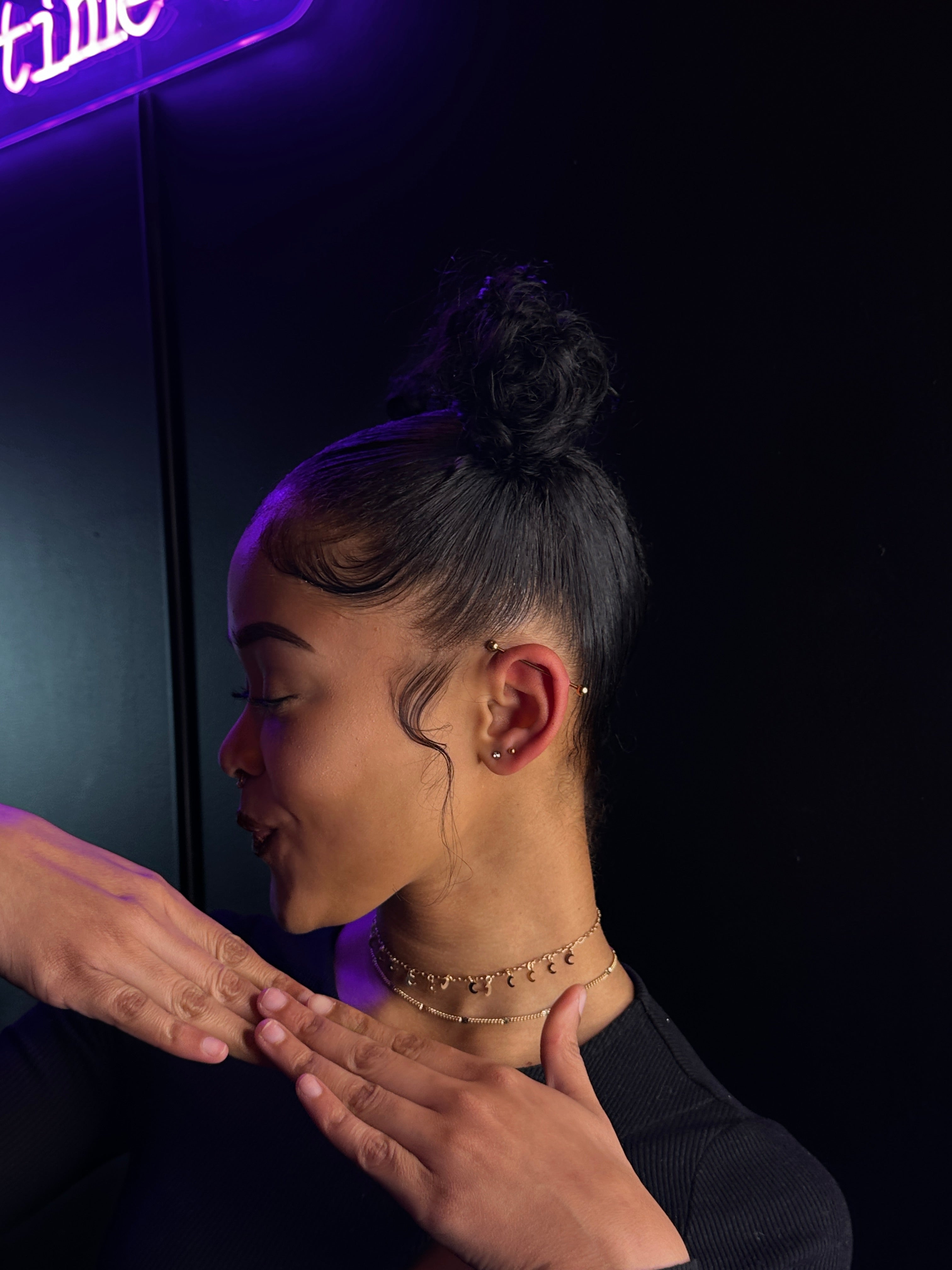
TAKE MORE HAND SANITIZER WITH YOU, WHEREVER YOU GO..
-
DIRTY MOUTH.
aftercare oral.When you have a mouth piercing, your body may produce more saliva, which can cause a whitish coating on your tongue. This is normal as your body tries to heal the area. To avoid problems, it is important to maintain good oral hygiene and follow aftercare instructions carefully.
→
-
DIRTY HAIR.
Just like our bodies, our hair collects bacteria, and the products we use contain chemicals that can damage piercings by clogging the wound and causing infection. To prevent this, keep your hair away from your piercing and consider wearing it up for the first few weeks to avoid infection or irritation.
→
-
SWEAT.
Sweating is a natural process of the body, but too much sweating can be harmful to a healing piercing. Excessive sweating makes it moist, which attracts bacteria. Sweat also contains salts that can irritate your piercing. For better healing, keep your piercing clean and dry. Avoid activities that make you sweat a lot for the first few weeks.
→
-
MAKEUP.
Be careful with makeup, as it can clog your piercing and cause bumps or infections. Makeup contains chemicals that can irritate healing piercings. Avoid putting makeup directly on or around your piercing while it is healing. Apply your makeup first, then clean your piercing.
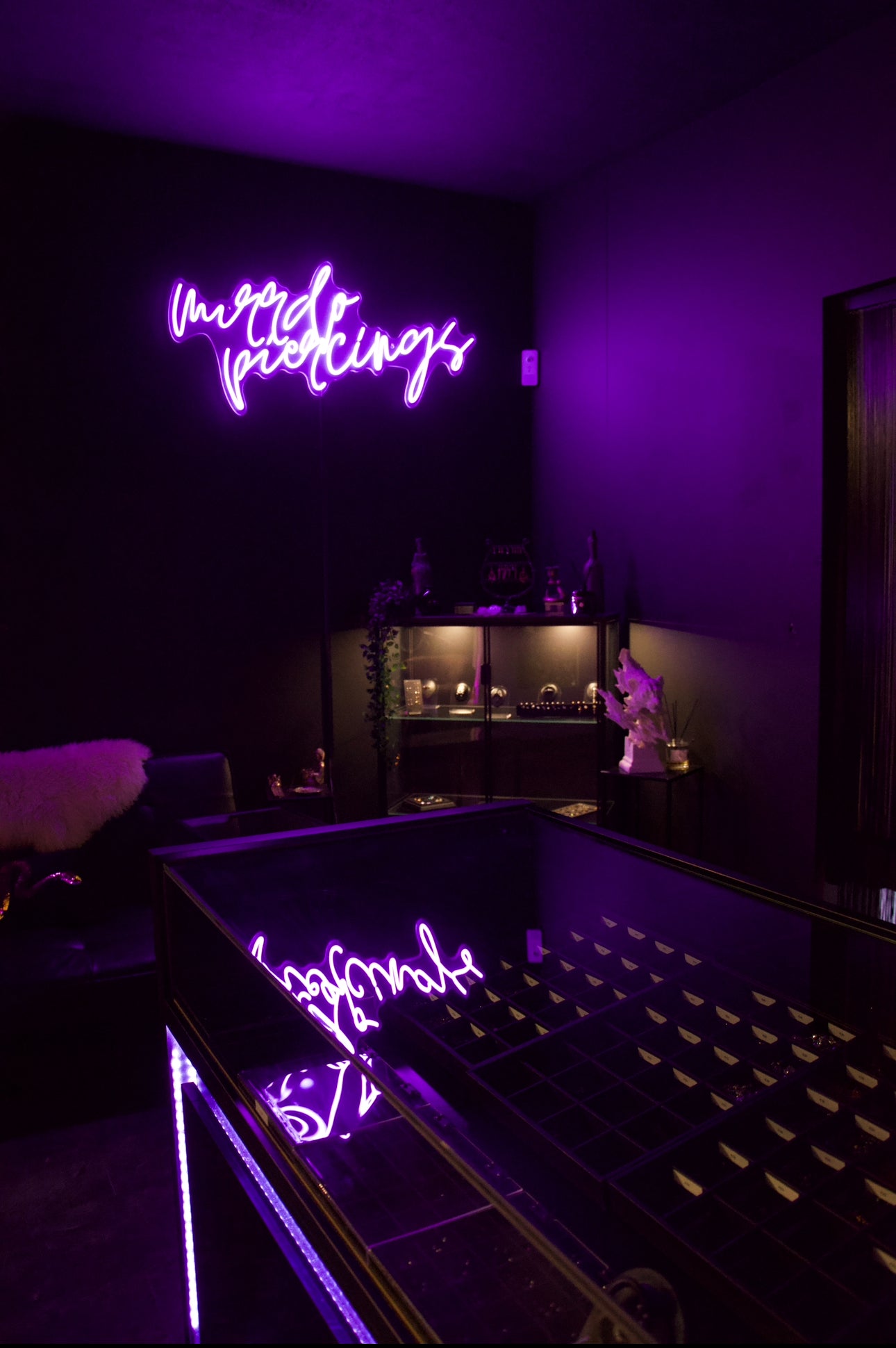
if it's not you, it's something outside you
LET'S MOVE ON.
THE THINGS YOU USE.
-
HEADPHONES.
Headphones can transfer bacteria from your ears to your piercing, especially if they come into contact with your face or the area around your piercing. Make sure your headphones are clean and avoid using them too close to your piercing, especially in the first few weeks of healing.
-
(SUN)GLASSES
(Sun)glasses collect bacteria and are often not cleaned regularly. If they are close to your piercing, bacteria can be transferred. The pressure of the glasses can also irritate the piercing and cause problems such as migration or rejection. Keep your glasses clean and pay attention to pressure on nearby piercings.
-
MASK.
If you have to wear a mask for work, avoid covering healing piercings as it can become stuffy under the mask, increasing the risk of infection, especially for nose piercings. Be careful when putting on and taking off the mask to avoid it getting caught or snagged on your piercing, especially for ear and nose piercings.

LAST BUT NOT LEAST.
YOUR ENVIRONMENT.
-
HOUSE OF BACTERIA.
Is your home or room clean of dust and other debris? If not, bacteria can float in the air, increasing the risk of infection, especially around your piercing. Keeping your living space clean and hygienic is important for your overall health and the healing of your piercing.
→
-
BEDDING.
Your bed holds a lot of bacteria, oils and dirt that can irritate or infect piercings, especially those on the face, ear or neck. Change your pillowcases and bedding regularly.
→
-
FRIENDS AIR.
If you sleep or spend time near someone else, bacteria from their skin, breath, or hair can transfer to your piercing. Make sure they wash their hands thoroughly before touching your piercing, and be careful when touching around your piercing to avoid infection.
-
WORKING ENVIRONMENT.
Working in a dusty, dirty, or unsanitary environment can significantly affect the healing of your piercing, especially if you spend long hours in it. The presence of dust, dirt, or steam can introduce irritants and bacteria, slowing the healing process and increasing the risk of infection.
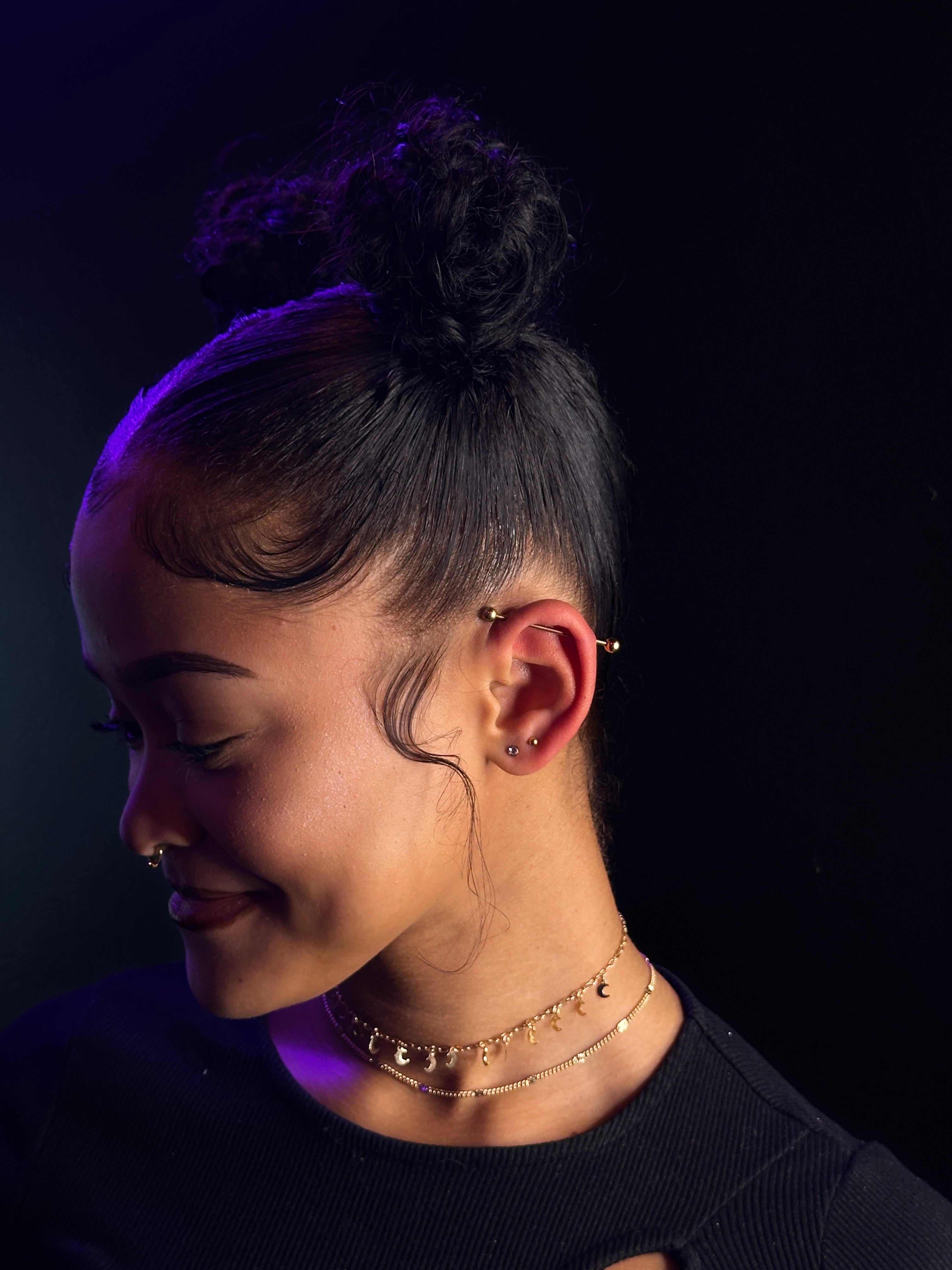
U GOT THIS.

I CAN GO ON AND ON.
I THINK YOU UNDERSTAND THE MESSAGE.
Just remember, germs are everywhere. Stay hygienic and be aware of anything that can affect the healing of your piercing. Think about your environment and how it can affect the healing process, and take proactive steps to keep your piercing clean and healthy.
